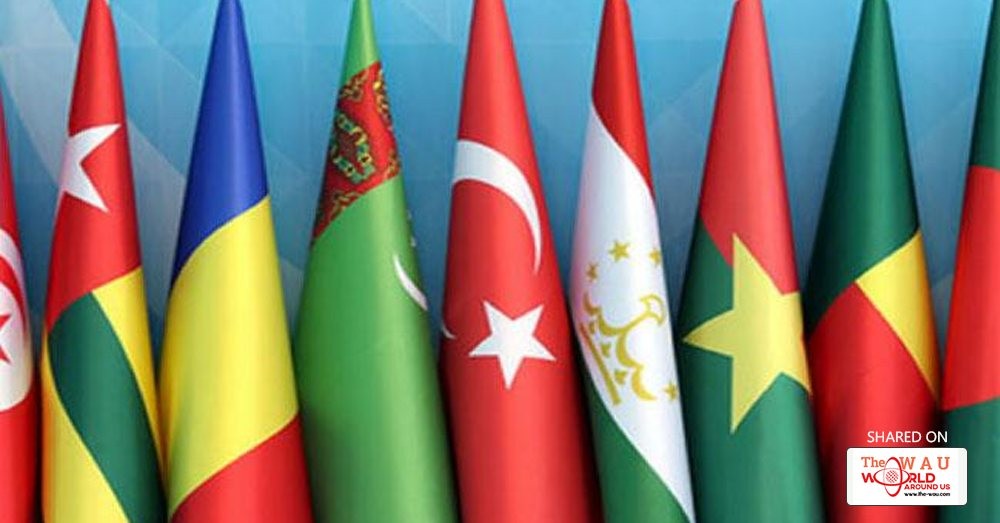US forces fired a barrage of cruise missiles at a Syrian airbase on Friday in response to what President Donald Trump called a “barbaric” chemical attack he blamed on the Damascus regime.
The massive strike — the first direct US action against President Bashar al-Assad’s government and Trump’s biggest military decision since taking office — marked a dramatic escalation in American involvement in Syria’s six-year civil war. Nine people, including five soldiers, were killed in the attack that destroyed the airbase in Aleppo.
US officials said 59 Tomahawk cruise missiles were fired from Navy ships in the Mediterranean at the Shayrat airfield at 3:40am, targeting the base from where Washington believes Tuesday’s deadly attack was launched.
Syria’s regime denounced the strike as a “flagrant aggression” and state news agency Sana said nine civilians including four children had been killed in villages near the base.The attack was hailed by the Syrian opposition and supported by US allies including Nato, European Union, Britain, France, Germany, Israel, Japan, Saudi Arabia and Turkey.
But it was denounced by Assad allies Iran and Russia, with Moscow warning that it would inflict “considerable damage” on US-Russia ties and halting an agreement with Washington aimed at avoiding clashes in Syrian airspace. China and Iraq also opposed the strike.
Trump announced the strike in a brief televised address delivered hours after the UN Security Council failed to agree on a probe into the suspected chemical attack.“Tonight I call on all civilised nations to join us in seeking to end this slaughter and bloodshed in Syria and also to end terrorism of all kinds and all types,” Trump said.
The missiles were fired from the USS Porter and the USS Ross, which belong to the US Navy’s Sixth Fleet and are in the eastern Mediterranean.Russia demanded an emergency meeting of the UN Security Council to discuss the US strike, calling it a “gross... violation of international law”. The Kremlin said it was an “aggression against a sovereign state” and would inflict “considerable damage” on US-Russia ties.
Meanwhile, the UN Security Council (UNSC) met in an emergency session on Friday following the US missile strikes in Syria, with France and Britain voicing support for Washington’s military response to a suspected chemical weapons attack. France and Britain called for a renewed push for political negotiations to end the six-year war in Syria.
“The United Kingdom fully supports the United States’ action overnight, which was an appropriate response to such a heinous crime, a war crime,” British Ambassador Matthew Rycroft said as he headed into the meeting.
Bolivian Ambassador Sacha Lorenti said the United States had behaved like “investigator, attorney, judge and executioner” in Syria. “This is not what international law is all about,” he told reporters ahead of the meeting.
UN Secretary General Antonio Guterres urged restraint and a renewed push for peace in Syria, saying in a statement that “there is no other way to solve the conflict than through
a political solution."
Iraq criticised "hasty interventions" in an apparent comment on the US action. But a wide range of US allies from Asia, Europe and the Middle East expressed support, if sometimes cautiously, in similar terms.
Japan´s Prime Minister Shinzo Abe told reporters: "Many innocent people became victims from the chemical attacks. The international community was shocked by the tragedy that left many young children among the victims. Japan supports the US government´s determination to prevent the spread and use of chemical weapons," he said.
Turkey viewed the strikes positively and said the international community should sustain its stance against the "barbarity" of the Syrian government, Deputy Prime Minister Numan Kurtulmus said.
In an interview with Turkish broadcaster Fox TV, Kurtulmus said Assad´s government must be punished in the international arena and the peace process in Syria needed to be accelerated.
French Foreign Minister Jean-Marc Ayrault said Russia and Iran needed to understand that supporting Assad made no sense and that the escalation of the US military role in Syria was a "warning" to "a criminal regime".
"Use of chemical weapons is appalling and should be punished because it is a war crime," Ayrault told Reuters and France Info radio.
French President Francois Hollande and German Chancellor Angela Merkel spoke by telephone. Both issued statements saying Assad was solely to blame for the air strikes.
The Dutch government said: "The United States has given a clear signal that the use of poison gas crosses a line." It also labelled the strikes a "proportionate" response.
"US strikes show needed resolve against barbaric chemical attacks. EU will work with the US to end brutality in Syria," the chairman of the council of EU leaders, Donald Tusk, said on Twitter.
Australian Prime Minister Malcolm Turnbull said the strikes sent "a vitally important message" that the world would not tolerate the use of chemical weapons.
"The retribution has been proportionate and it has been swift," he told reporters in Sydney.
Indonesia said it also strongly condemned the use of chemical weapons in Syria.
"At the same time, Indonesia is concerned with unilateral actions by any parties, including the use of Tomahawk missiles, in responding to the chemical weapon attack tragedy in Syria," Foreign Ministry spokesman Armanatha Nasir said in a text message.
Russian Prime Minister Dmitry Medvedev complained that US cruise missile strikes on a Syrian airbase were one step away from clashing with the Russian military.
Medvedev, writing on social media, said the US strikes were illegal and had been "one step away from military clashes with Russia.
On the other hand, Nato head Jens Stoltenberg said Syria is to blame for the US missile strikes.
"The Syrian regime bears the full responsibility for this development," Stoltenberg said in a statement.
"Any use of chemical weapons is unacceptable, cannot go unanswered, and those responsible must be held accountable," he added.
Saudi Arabia said it "fully supports" the strikes, adding that it was a "courageous decision" by President Donald Trump in response to the alleged use of chemical weapons.
"A responsible source at the foreign ministry expressed the Kingdom of Saudi Arabia's full support for the American military operations on military targets in Syria, which came as a response to the Syrian regime's use of chemical weapons against innocent civilians," a statement carried by state news agency SPA said.
Iran, also an Assad ally, said it strongly condemns the missile strikes against the Syrian army's Shayrat air base.
"Iran strongly condemns any such unilateral strikes ... such measures will strengthen terrorists in Syria ... and it will complicate the situation in Syria and the region," Isna news agency quoted Foreign Ministry spokesman Bahram Qasemi as saying.
Share This Post















